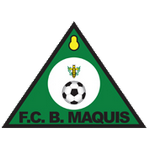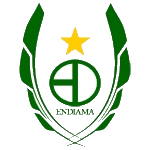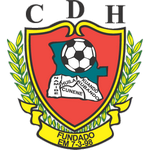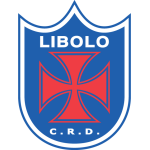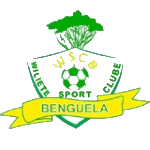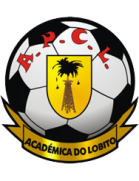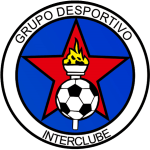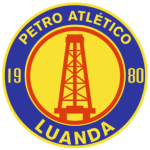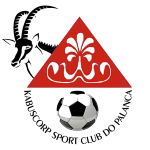Angola (League) - AI Football Predictions Online
| AI | ||
|---|---|---|
 Girabola Girabola | ||
| 2025-04-19 10:00 |
| |
| 2025-04-19 10:00 |
| |
| 2025-04-19 10:00 |
| |
| 2025-04-19 10:30 |
| |
| 2025-04-19 11:00 |
| |
| 2025-04-20 10:00 |
| |
| 2025-04-20 10:30 |
| |
| 2025-04-20 11:00 |
| |
| 2025-04-26 10:00 |
| |
| 2025-04-26 10:00 |
| |
| 2025-04-26 10:30 |
| |
| 2025-04-26 11:00 |
| |
| 2025-04-26 11:00 |
| |
| 2025-04-27 10:00 |
| |
| 2025-04-27 10:30 |
| |
| 2025-04-27 11:00 |
| |
The Evolution of Football in Angola
Angola's passion for football runs deep, woven into the fabric of its society. The sport serves as a unifying force in a country where cultural diversity thrives. From the dusty streets of Luanda to the lush green pitches of provincial towns, football is not merely a game; it reflects the hopes, dreams, and aspirations of Angolans. The Angolan league system, particularly the Girabola, showcases the evolution of football in the country, from its historical roots to its current status as a competitive force in African football.
Historical Context: The Roots of Football in Angola
The introduction of football in Angola can be traced back to the Portuguese colonial era, when the sport was brought over by settlers and missionaries in the late 19th century. By the early 20th century, local teams began to emerge, primarily in urban areas. The first recorded match took place in 1910, setting the stage for a burgeoning football culture. However, it wasn't until the mid-20th century that football truly began to flourish, with the establishment of clubs such as Primeiro de Agosto and Atlético Petróleos de Luanda, which would go on to dominate the domestic scene.
After Angola gained independence in 1975, the football landscape shifted dramatically. The country faced years of civil conflict that disrupted the league system and led to the decline of many clubs. Despite these challenges, the resurgence of the sport in the late 1990s marked a new beginning. Efforts were made to stabilize the league, culminating in the establishment of the Girabola in 1979, which became the top tier of Angolan football.
Girabola: The Pinnacle of Angolan Football
The Girabola has evolved into a prestigious competition that showcases the best football talent in Angola. With teams like Petro de Luanda and 1º de Agosto consistently vying for the title, the league is known for its intense rivalries and passionate fan bases. The 2022 season was particularly thrilling, with 1º de Agosto securing the championship after a nail-biting finish that saw them edge out Petro de Luanda by just two points. This level of competition not only elevates the league's profile but also provides a platform for local talent to shine.
Statistics reveal a fascinating narrative: since the league's inception, clubs from Luanda have dominated the standings, with Petro de Luanda winning the most titles. The fierce rivalry between Petro and 1º de Agosto, often referred to as the "Clássico do Povo," is a spectacle that draws thousands of spectators, creating an electrifying atmosphere in the stadiums. The matches are characterized by vibrant displays of support, with fans donning their team colors and chanting in unison, reflecting a deep-rooted loyalty and passion for their clubs.
Player Development and International Success
As the Girabola gains recognition, so does its impact on player development. The league has become a breeding ground for talent, with players like Manucho Gonçalves and Gelson Martins rising through the ranks to achieve international acclaim. Manucho, known for his powerful presence on the field, made significant contributions to the Angolan national team during the 2006 FIFA World Cup, marking a historic moment for Angolan football.
The national team, known as the Palancas Negras, has also made strides on the continental stage, participating in various African Cup of Nations tournaments. Their journey has been marked by memorable moments, including a quarter-final appearance in the 2008 edition, which fueled national pride and demonstrated the potential of Angolan football on a larger scale. The blend of homegrown talent and the experience gained from international competitions continues to shape the future of the sport in the country.
The Role of Football in Angolan Society
Football in Angola transcends the boundaries of sport; it plays a pivotal role in social cohesion and community identity. During matches, the spirit of togetherness is palpable as fans from different backgrounds come together, united by their love for the game. This is particularly evident in local derbies, where the stakes are high, and the passion is unmatched. Beyond the stadiums, football serves as a vehicle for youth engagement, with many grassroots initiatives aimed at promoting the sport among young people. These programs not only nurture talent but also instill values such as teamwork, discipline, and resilience.
Moreover, the economic impact of football in Angola cannot be overlooked. The sport generates employment opportunities through clubs, coaching, and administration. The increasing commercialization of the Girabola has attracted sponsorships and media attention, enabling clubs to invest in better facilities and player development. This, in turn, enhances the overall quality of football in the country and positions Angola as a country on the rise in the football world.
Looking Ahead: The Future of Football in Angola
The future of football in Angola is bright, fueled by a passionate fan base and a commitment to developing the sport at all levels. As the Girabola continues to grow, there is a concerted effort to improve infrastructure, enhance coaching standards, and build a sustainable model for the future. With ongoing investment in youth academies and partnerships with international clubs, there is a strong potential for Angolan talent to make an even bigger impact on the global stage.
As the nation looks to the future, the spirit of football will undoubtedly remain a central element of Angolan culture. The narratives of triumph and heartbreak, the struggles and successes, will continue to resonate, forging a legacy that future generations will cherish. The evolution of football in Angola is a testament to the resilience and passion of its people, and as the beautiful game continues to evolve, so too will the heart of Angola.
 English
English  Español
Español  Italiano
Italiano  Deutsch
Deutsch  Polski
Polski  Português
Português  Français
Français  Nederlands
Nederlands  Svenska
Svenska  Türkçe
Türkçe  Hrvatski
Hrvatski 


